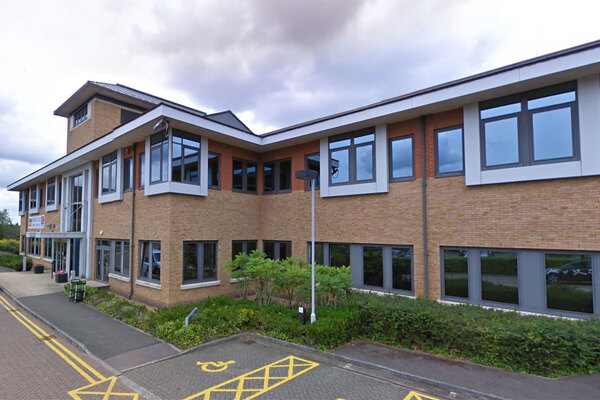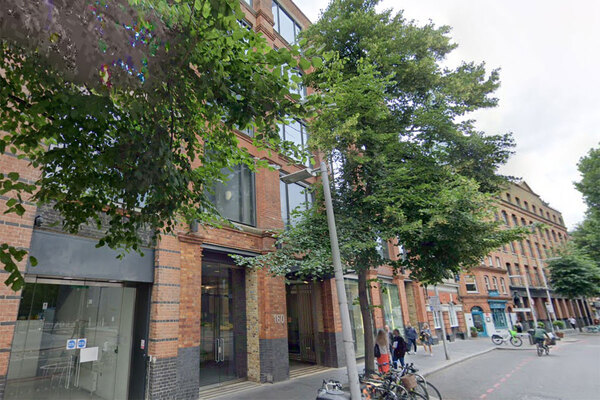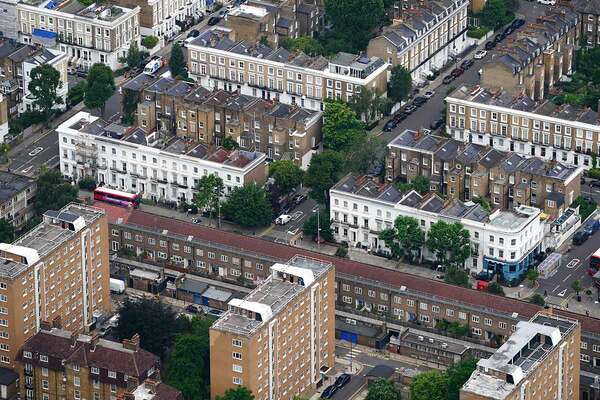You are viewing 1 of your 1 free articles
Regulatory judgements: six associations get upgrades in last assessments before year end
The Regulator of Social Housing has published 43 regulatory judgements, the last round of assessments before the end of the year.
Included in the 43 judgements were nine narrative regulatory judgements, including three governance ratings. YMCA St Paul’s Group was given its first regulatory assessment, while Rochdale Boroughwide Housing had the basis for its financial viability changed.
The remaining 33 associations had their existing grades confirmed.
Sefton-based One Vision was the only association to have its financial viability downgraded, being moved from a V1 to a V2 grading. V2 means the association has the financial capacity to deal with a reasonable range of adverse scenarios but needs to manage material risks to ensure continued compliance.
The judgement said One Vision faces a “reasonable range of adverse scenarios”, including two one-off spends relating to fire safety works and a pension deficit payment, which it suggested will impact significantly on the company’s interest cover in 2019/20.
The 2019 business plan shows interest cover will strengthen in 2020/21, but until then One Vision’s capacity to “respond to adverse events is reduced”, the judgement said.
The landlord’s lenders have agreed to exclude the two items from covenant calculation, so loans are not affected.
It has adequate unutilised loan facilities, sufficient security and liquidity, and the latest business plan forecasts that it will continue to meet its financial covenants, it said.
The association retained its current G1 governance grading.
A spokesperson for One Vision said: “One Vision Housing (OVH) has responded positively to the news that the housing regulator has regraded it to a V2/G1.
“OVH continues to invest ahead of the curve to achieve its growth ambitions. This includes building 1,140 new quality, safe homes by 2024; accelerating improvement works on its high-rise blocks and managing its pension fund deficit to generate substantial savings, which will be reinvested.
“The regrade to V2/G1 reflects OVH is successfully managing increased risk in order to achieve more. The regulator has no concerns about OVH’s financial management or decision-making. OVH will continue to strive for excellence and looks forward to a period of significant impending growth.”
Wrekin Housing Group, which was formed by a stock transfer of 13,000 homes from Telford and Wrekin Council in 1999, had its viability upgraded from V2 to V1 after the regulator found that its financial plans were consistent with and supported its financial strategy.
“Following the completion of its refinancing exercise, Wrekin’s business plan is adequately funded and demonstrates increased capacity to manage downside risk,” the judgement said.
It found that the landlord has sufficient security in place and demonstrated that it could meet its financial costs under a wide range of scenarios. The regulator’s assessment of its governance compliance remains unchanged, at a G1 rating.
In the regulator’s first narrative assessment for Cobalt Housing, which owns 6,000 homes in north Liverpool, the organisation had its governance rating upgraded from an interim assessment of G2 to G1.
The regulator said that Cobalt, which demerged from Onward Homes in 2017, has “implemented new governance, risk management and business planning arrangements that meet our governance requirements”.
Cobalt, which employs 129 staff and last year had a turnover of £27.5m, has plans to develop 500 homes over the next five years.
Advance Housing and Support, which owns more than 2,000 homes in the South and the Midlands, has had its governance rating increased to G1, bringing its overall rating to G1 V1.
Established in 1974, the organisation currently has a three-year strategy to develop 259 new homes by 2021/22, including 180 homes under its specialist shared ownership product for people with disabilities and mental health conditions.
The regulator said that Advance had “strengthened the board’s strategic oversight of the business through board recruitment and enhancements made in performance reporting”.
Advance has also introduced a revised value for money strategy, which the regulator said has improved the board’s understanding of costs and how these are allocated in the financial statements.
The Community Housing Group (TCHG), which owns 6,000 homes across Worcestershire and Shropshire, has had its financial viability rating increased from V2 to V1.
The regulator said that TCHG’s previous business plan incorporated “significant cost savings” but that the landlord has made “significant progress” with the delivery of its efficiency saving programme.
TCHG, which plans to develop 440 homes over the next five years, has “an adequately funded business plan, sufficient security in place, and is forecast to continue to meet its financial covenants under a wide range of adverse scenarios”, the regulator said.
First Choice Homes Oldham (FCHO), which owns around 11,500 units locally, has had its financial viability rating upgraded from V2 to V1.
FCHO, which aims to develop 1,105 homes in the next five years, registered with the regulator in 2011 and undertook the transfer of housing stock from Oldham Metropolitan Borough Council, having operated as an ALMO since 2002.
Regulatory judgements published on 19 December 2019
| Provider | Governance | Viability | Explanation |
|---|---|---|---|
| Advance Housing and Support | G1 | V1 | Governance upgrade |
| Arawak Walton Housing Association | G1 | V1 | No change |
| B3 Living | G1 | V1 | No change |
| Byker Community Trust | G1 | V2 | No change |
| Cambridge Housing Society (The) | G1 | V2 | No change |
| Christian Action (Enfield) Housing Association | G1 | V2 | No change |
| Cobalt Housing | G1 | V1 | Governance upgrade |
| Community Housing Group (The) | G1 | V1 | Viability upgrade |
| Connect Housing Association | G1 | V1 | No change |
| Cottsway Housing Association | G1 | V1 | No change |
| Cross Keys Homes | G1 | V1 | No change |
| First Choice Homes Oldham | G1 | V1 | Viability upgrade |
| Grand Union Housing Group | G1 | V1 | No change |
| Great Places Housing Group | G1 | V1 | No change |
| Greatwell Homes | G1 | V1 | No change |
| Halton Housing | G1 | V1 | No change |
| Hightown Housing Association | G1 | V1 | No change |
| Hundred Houses Society | G1 | V1 | No change |
| Industrial Dwellings Society (1885) (The) | G1 | V1 | No change |
| Magenta Living | G2 | V1 | No change |
| NSAH (Alliance Homes) | G1 | V1 | Governance upgrade |
| One Vision Housing | G1 | V2 | Viability downgrade |
| Orbit Group | G1 | V2 | No change |
| Paradigm Housing Group | G1 | V1 | No change |
| Peabody Trust | G1 | V2 | No change |
| Plus Dane Housing | G1 | V1 | No change |
| Radian Group | G1 | V1 | First assessment since merger |
| Railway Housing Association and Benefit Fund | G1 | V1 | No change |
| Reside Housing Association | G2 | V2 | No change |
| Richmond Housing Partnership | G1 | V1 | No change |
| Rochdale Boroughwide Housing | G1 | V2 | No change |
| Settle Group | G1 | V1 | No change |
| Soha Housing | G1 | V1 | No change |
| South Yorkshire Housing Association | G1 | V2 | No change |
| Sovereign Housing Association | G1 | V1 | No change |
| St Mungo Community Housing Association | G1 | V2 | No change |
| Stonewater | G1 | V1 | No change |
| Together Housing Group | G1 | V1 | No change |
| Trident Housing Association | G1 | V1 | No change |
| Wakefield And District Housing | G1 | V1 | No change |
| Wandle Housing Association | G2 | V2 | No change |
| Wrekin Housing Group (The) | G1 | V1 | Viability upgrade |
| YMCA St Paul's Group | G2 | V2 | First assessment |
Jargon-busting: some regulatory terms and what they mean
- Co-regulation: this means boards are responsible for deciding how to meet the regulator’s standards – the regulator does not prescribe how to do this
- Gradings under review list: a public list of providers under investigation who are at risk of being judged non-compliant with regulatory standards
- In-depth assessment: a planned inspection, in which the regulator assesses a providers viability, governance and approach to value for money
- Narrative regulatory judgement: a detailed explanation of the reasons behind a regulatory judgement. Narrative judgements are published where a providers’ viability or governance ratings have changed, or where RSH has particular issues or concerns.
- Reactive engagement: refers to the regulator reacting to complaints or allegations about a provider and taking action
- Stability check: an annual assessment of all providers owning 1,000 social homes or more. RSH uses accounts and statistical return data to check for any changes in a providers’ risk profile.
- Strapline regulatory judgement: where a provider is meeting the standards, and its governance or viability ratings have not changed since its previous judgement, the regulator does not publish a full judgement explaining its reasons for the gradings. Instead it just publishes the gradings themselves, in a ‘strapline’.
Regulatory judgements in England explained
The Regulator of Social Housing publishes regulatory judgements for all providers owning 1,000 or more social housing homes.
These judgements set out whether the provider is complying with the regulator’s governance and financial viability standards.
The regulator carries out an assessment either through a scheduled in-depth assessment, or reactive engagement (in which the regulator acts following information about a provider).
It then awards the provider a rating from one to four for financial viability (V) and a separate rating from one to four for governance (G).
Providers must score two or higher in both categories to be judged as complying with the standards.
As providers have increasingly taken on more risk to cross-subsidise social and affordable housing delivery through market-facing activity, the regulator has changed a number of associations’ viability ratings from V1 to V2.
The regulator often categorises this kind of regulatory action as ‘regrades’ rather than downgrades. Click here to read more.
Key to ratings:
V1/G1: Compliant
V2/G2: Compliant
V3/G3: Non-compliant and intensive regulatory engagement needed
V4/G4: Non-complaint, serious failures, leading to either intensive regulatory engagement or the use of enforcement powers
Rating straplines in full:
Governance ratings:
G1: The provider meets our governance requirements.
G2: The provider meets our governance requirements but needs to improve some aspects of its governance arrangements to support continued compliance.
G3: The provider does not meet our governance requirements. There are issues of serious regulatory concern and in agreement with us the provider is working to improve its position.
G4: The provider does not meet our governance requirements. There are issues of serious regulatory concern and the provider is subject to regulatory intervention or enforcement action.
Financial viability ratings:
V1: The provider meets our viability requirements and has the financial capacity to deal with a wide range of adverse scenarios.
V2: The provider meets our viability requirements. It has the financial capacity to deal with a reasonable range of adverse scenarios but needs to manage material risks to ensure continued compliance.
V3: The provider does not meet our viability requirements. There are issues of serious regulatory concern and, in agreement with us, the provider is working to improve its position.
V4: The provider does not meet our viability requirements. There are issues of serious regulatory concern and the provider is subject to regulatory intervention or enforcement action.












